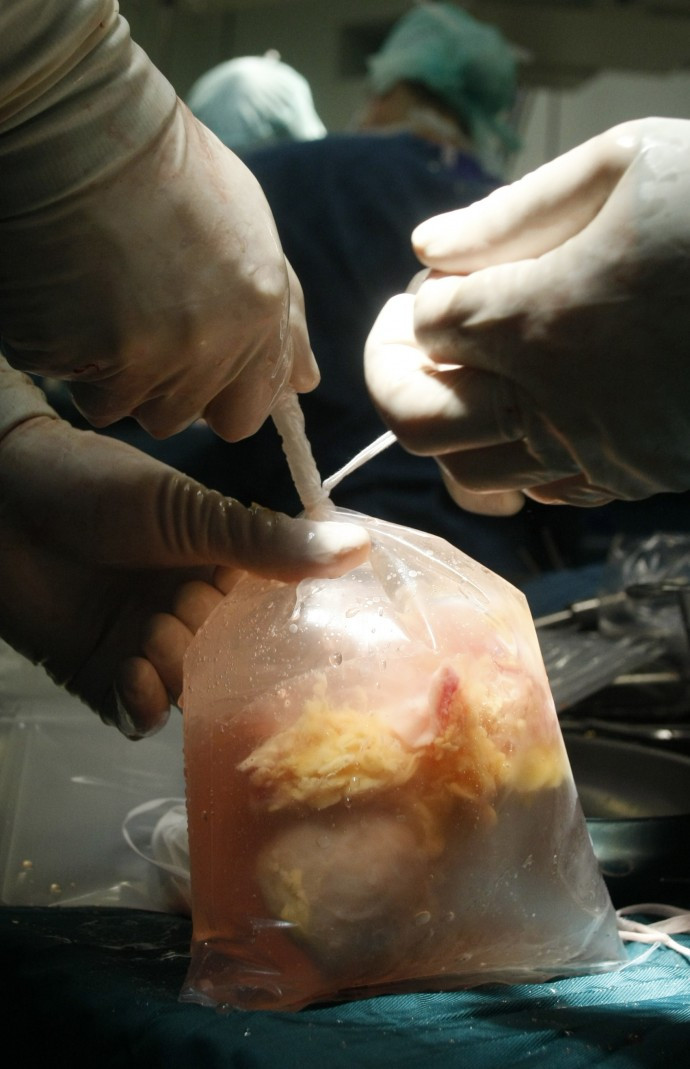What are red markets? World's major organ trafficking countries bank on poverty and desperation
With a large number of migrants desperate to find passage to Europe, the organ market has witnessed a boom.
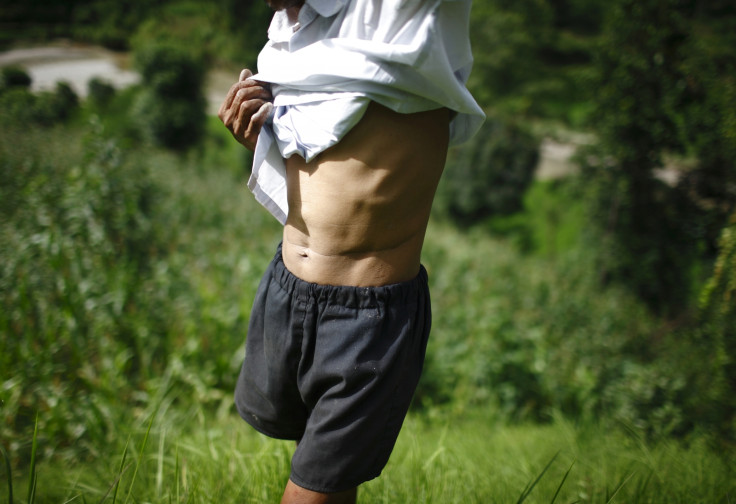
A recent investigative piece into the conditions of African migrants stuck in Libya raised the curtain on the underground slave trade rings in the country and triggered international calls for investigations into the matter. It also shed light on the organ market that has been burgeoning alongside — banking on the bodies of financially desperate migrants.
The migrant crisis in Africa as well as other parts of the world has offered organ traffickers a steady flow of donors — willing or unwilling — to sever ties with their kidneys, livers and other body parts.
This economic system that trades primarily in human flesh or human beings has been described as a Red Market and according to journalist and author Scott Carney, "unlike black, white or gray markets, it exists in a different category because the product being traded cannot be valued in monetary terms alone".
"The value of human tissue is the value of life itself, and its costs are paid in blood," he writes on his website.
In an interview with NPR in 2011, he recalled visiting a refugee camp in India's southern state of Tamil Nadu, for those affected by the tsunami. Nicknamed Kidneyvakkam, the camp doubled as a market place for organ brokers eager to make the most of these survivors' desperation.
"The women are just lined up," Carney recalled of his visit which he documented in his book The Red Market. "They have their exposed midriffs and there are all these kidney extraction scars because when the tsunami happened, all these organ brokers came in and realized there were a lot of people in very desperate situations and they could turn a lot of quick cash by just convincing people to sell their kidneys."
While most countries have strict regulatory bodies that keep track of organ donations and any monetary value tagged to them, other more lax or corrupt governments turn a blind eye to the underground market where almost any part of the human body can be bought — from the popular kidney, to a heart, eyes hair and skin.
Fair trade is not a concept familiar with people running in red markets. Exploitation is the business strategy in prevalence and allows for desperate people to accept meagre payments to allow uncertified surgeons to cut them open and remove their organs. In worse cases, people are simply kidnapped, their organs removed and they are left to bleed to death or die from serious infections.
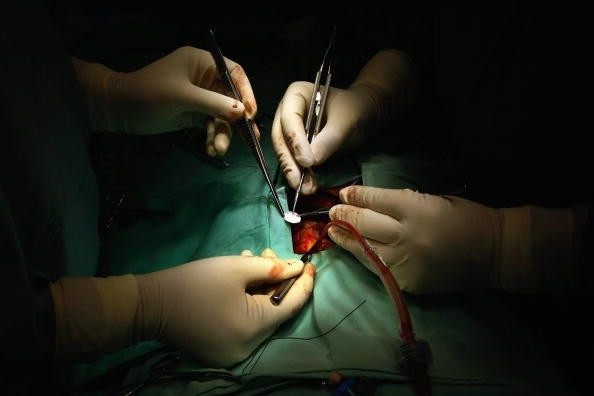
With lifestyle diseases on the rise, the need for organ transplants continues to escalate, leading to the development of the international organ trade, where potential recipients travel abroad to obtain organs through commercial transactions. This is commonly referred to as "transplant tourism".
Considering the clandestine nature of the business, it is difficult to identify the extent of organ trafficking. However, The World Health Organisation has managed to shortlist the countries most infamous for their red markets.
India
India has earned the reputation for being a hub for organ trafficking thanks to its large population of people living below the poverty line along with weak regulations. According to the WHO, the number of foreign recipients seems to have decreased after the enactment of a law banning the organ trade (the Human Organ Transplantation Act of 1994), but underground organ markets still exist.
The influx of Rohingya refugees into the country is also a concern for watchdog organisations, which believe that asylum camps are already doubling as organ markets.
More than 8,000 cases of human trafficking were reported in India in 2016, while 23,000 victims, including 182 foreigners, were rescued during the year, according to National Crime Records Bureau data.
China
The Asian giant has been criticised time and again by the global community for not taking stronger measures against the local red market. According to Reuters, the government took measures to curtail the transplant of organs to foreign recipients in 2007 after banning their sales in 2006.
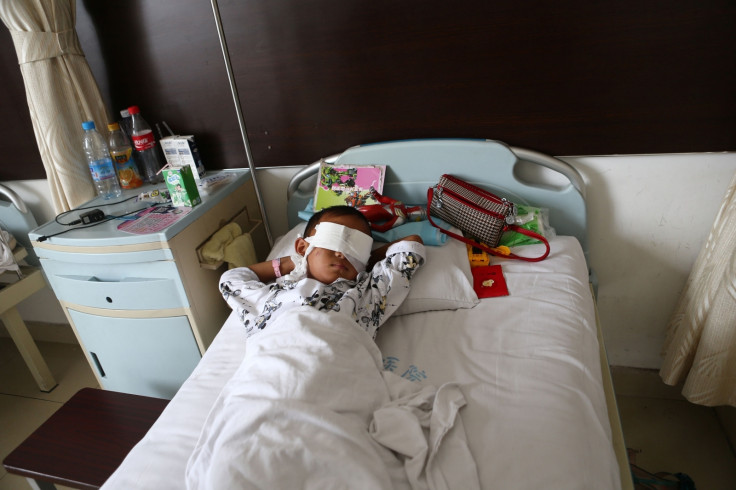
"What's going on in China in regards to transplantations is mass killing of innocent people and a cover up," former Canadian Secretary of State David Kilgour said at an organ trafficking summit held on 2 November. He was referencing reports of how members of a spiritual practice called Falun Gong were arrested, held without trial, tortured, killed and harvested for organs.
Pakistan
The move by the Indian government to take down the country's red markets has led to increased sales in its neighbouring country. Brokers especially target people from the poorer villages.
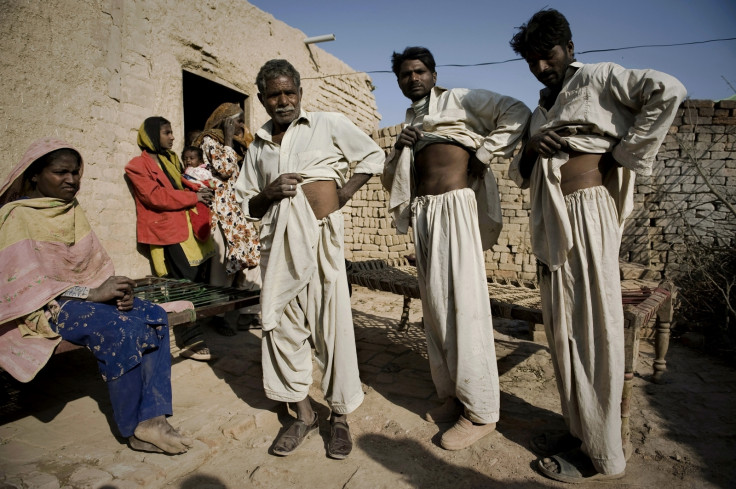
Colombia & Costa Rica
Organ traffickers have made use of Colombia's booming black market to obtain and sell body parts as well. Proximity to the US allows for recipients to visit the country and undergo the operations with less time to waste and cost. Despite laws put into place by the government, websites continue to offer livers and kidneys on sale.
"Costa Rica may be transforming from a tiny player in the global organ trafficking trade into an epicenter for illegal organ trafficking, in large part due to corruption that has helped fuel a sophisticated transplant tourism industry as well as the global imbalance between the limited supply of kidneys and the high demand for transplants," human trafficking expert, Luz Estella Ortiz-Nagle, a lawyer from Colombia, told the Costa Rican daily La Nación in September. "Corrupt officials in various sectors is an essential aspect for these networks to operate successfully, given the breadth of their operations."
Philippines
Poverty in the Philippines has also given rise to illegal organ markets. Combined with comparatively cheap medical costs, transplant tourism continues to thrive in the region.
Unlike most other smuggled products, organs have a very short life outside of the human body and need to be transplanted within 30 hours for a kidney, 12 hours for a pancreas or liver, and less than six hours for a heart or lung. To provide quick supply to buyers in Europe, some of the continent's poorer countries have also become trafficking hubs. Cartels in Moldova and Kosovo specialise in the trade.
While the red market depends heavily on poverty stricken countries from which to harvest organs, it also relies on the steady demand from countries where people are willing to pay the large sums to procure them. "Organ-importing countries" refer to the countries of origin of the patients going overseas to purchase organs for transplantation. A report by Organs Watch, an organisation based at the University of California, USA, identified Australia, Canada, Israel, Japan, Oman, Saudi Arabia and the USA as major organ-importing countries.
